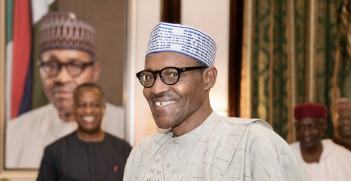China and Myanmar: When Neighbours Become Good Friends

China wants to keep its good relationship with Myanmar. But, because the major powers are also taking interest, China must work to make a strong relationship even stronger.
Myanmar is China’s security barrier and strategic buffer. China’s top security concern is to keep Myanmar from joining the US ‘encirclement of China’ policy. Myanmar’s strategic geographical location means it is an ideal place from which to pose a threat to China. The United States and Japan seem to be planning to use Myanmar as a wedge between China and India in order to provoke a struggle for profit between the two countries. The United States has also stepped up its efforts to build a ‘c-shaped ring of encirclement’ around China. China needs to maintain good and sustainable bilateral relations with Myanmar to prevent this.
China has shown interest in using Myanmar as a future springboard to the Indian Ocean. Strong bilateral relations will ensure a smooth passage. This is critical for the successful implementation of the Bangladesh–China–India–Myanmar (BCIM) Economic Corridor initiative. As former policy analyst for US Defence Wayne Bert said, ‘China, through economic and military expansion, is establishing a position that strengthens it vis-à-vis both India and Southeast Asia, and improves its access to the Indian Ocean channel’.
Myanmar is of one China’s major allies in the international arena. China and Myanmar adopted different development patterns from those generally recognised by the West. Myanmar and China support each other on issues such as human rights, freedom and democracy, which some Western countries use as an excuse to criticise both countries.
Maintaining good relations is also necessary for border stability as there are many ethnic minorities living on both sides of the China–Myanmar border. After the Kokang Incident in 2009, tens of thousands of Myanmar refugees fled into China and shelling spilled over into Chinese territory. This incident not only caused loss of life and property damage, but also endangered the security and stability of China’s south-western frontier.
The high levels of cross-border crime (such as drug trafficking) have a serious negative impact on social stability and economic development in China’s south-western region. China can only eliminate this social cancer if both countries’ central and local governments cooperate with each other.
Myanmar is also a key determiner of prosperity along China’s south-western frontier. Myanmar is an important channel for energy. As political analyst Christopher O’Hara points out, ‘China wants what Myanmar has — Indian Ocean access and abundant natural resources to support its rise’. About 80 per cent of China’s oil imports come through the Malacca Strait near Indonesia. China is strategically choosing to build a direct channel from south-western China to the Indian Ocean to safeguard its energy security. In June 2013, the Sino–Myanmar oil and gas pipeline was successfully completed; gas started to flow to China in October 2013.
China, the US, India, Japan and the EU are all significant players in the ‘Myanmar game’. Undoubtedly, the major powers desire to strengthen their own strategic positions in Myanmar. And Myanmar intends to take advantage of the interest from the US, India, Japan and the EU to balance China’s influence, while taking care not to jeopardise its own relations with China.
China is concerned that other powers will interfere in Myanmar’s internal affairs. The major powers are challenging China’s position as the preeminent external power in Myanmar. India wants to ensure the safety of the so-called ‘East Gate’ in order to prevent any threat to India from China via Myanmar. India views China’s energy trade route with Myanmar as entering its own backyard.
The US is also worried that China’s increasing presence in the Indian Ocean will harm its interests. The US and Japan are concerned about China’s intentions regarding the BCIM Economic Corridor. They fear increasing regional economic integration with China at the centre.
Myanmar’s hedging strategy with regard to international relations further complicates its bilateral relations.
While China faces challenges, it can also exploit opportunities. The other major powers are not unified in their strategies as they lack mutual trust. The India–Myanmar relationship is not a serious threat to China. Myanmar’s goal in developing relations with India is to balance the power of China in Myanmar, but India has been too slow to develop the relationship. It is unlikely that Myanmar will promote bilateral or multilateral relations with India at the expense of China.
The China–Myanmar relationship will continue to evolve as time goes on, but one thing will stay the same: the strong relationship will not radically deteriorate.
Dai Yonghong is Professor at the Institute of South Asia Studies, Director of the Center for Myanmar Studies, Sichuan University, China and Non-Resident Senior Fellow at the Institute of Security and Development Policy, Sweden. This article was originally published in The East Asia Forum on 6 March 2015. It is republished with permission.




